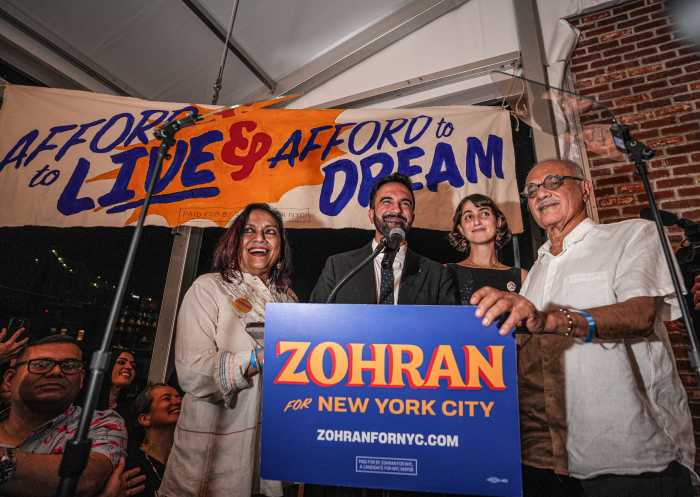There’s plenty of winter left.
For NYC residents of public housing, that means months of worrying whether the heat will stay on. During the recent 10-day cold snap, 27,000 New York City Housing Authority apartments were at some point without heat. That’s outrageous and unacceptable.
And then the ceiling caved in — literally.
A NYCHA apartment’s ceiling collapsed last weekend after complaints about a leak upstairs reportedly went unaddressed. Making matters worse, the Brooklyn family was sent to another apartment without furniture. City officials are trying to find permanent housing for the family.
Nothing is simple for NYCHA, which oversees 176,000 apartments and has experienced decades of mismanagement, disinvestment and other troubles, from crime to broken elevators to lead paint. The authority faces a capital funding deficit of $17 billion. There are no simple solutions.
But this brings life to our progressive mayor’s signature phrase, that New York is a tale of two cities. Mayor Bill de Blasio must bring more urgency to addressing NYCHA’s recent problems with a systemic plan. Start by expressing outrage, and by spending more time at the complexes. Then, channel that outrage. In this city run by real estate barons, ask top experts to help devise a better way and analyze the housing authority’s management, staffing, union work rules, communication and facility maintenance.
There is always blame to go around. Last fall, 100 heating technicians received promotions and left their jobs. NYCHA has 55 spots left to fill. More than half of the boilers are past their life expectancy, some more than 60 years old. Some mobile boilers failed during the deep freeze, too.
NYCHA has been neglected by administration after administration. The authority is supposed to be federally funded, but can’t rely on that now. President Donald Trump has proposed slashing Housing and Urban Development funding. Neither the city nor the state has a legal obligation to fund NYCHA, but both voluntarily added money in recent years. Both are going to have to do more.
But there are far larger questions to address.
New York City residents must not be left in the cold.






























